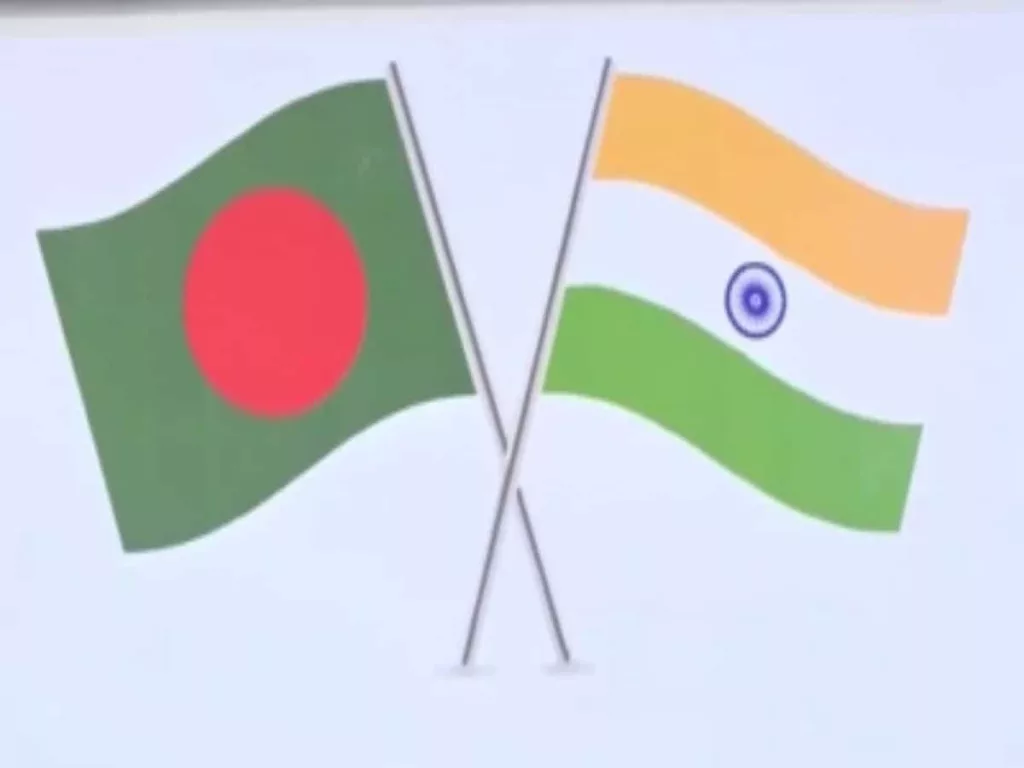Dhaka: An inquiry commission formed by Bangladesh’s interim government has said that it has found India’s “involvement” in incidents of “enforced disappearances” during deposed prime minister Sheikh Hasina’s regime, the state-run news agency BSS reported on Saturday.
The Bangladesh Sangbad Sangstha (BSS), quoting the Commission of Inquiry on Enforced Disappearance, said, “The Indian involvement in Bangladesh’s system of enforced disappearances is a matter of public record.”
Also ReadThree Hindu temples vandalised in Bangladesh; one arrested
The news report said that according to the five-member commission headed by retired Supreme Court judge Mainul Islam Chowdhury, there was a “persistent suggestion in law enforcement circles” that some prisoners might still be languishing in Indian jails.
“We recommend the Ministries of Foreign and Home to extend their best efforts to identify any Bangladeshi citizens who may still remain incarcerated in India. It is beyond the jurisdiction of the commission to follow this trail outside Bangladesh,” the commission said.
The commission said it found intelligence information about the practice of captive exchanges between India and Bangladesh and the possible subsequent fate of detainees.
The commission cited “two highly publicised cases that provide valuable insights into how such operations were carried out”.
“One was the case of Shukhranjan Bali, who was abducted from the Bangladesh Supreme Court premises and resurfaced subsequently in an Indian jail, and the other was of Bangladesh Nationalist Party (BNP) leader Salahuddin Ahmed,” the commission said.
The commission said BNP leader Ahmed’s case “exemplifies certain practices of the Bangladesh-India rendition system”.
It said that while hiding at a house in Dhaka’s Uttara area in 2015, he recounted being imprisoned “in a barren cell, where a hole in the ground served as a toilet”.
“The blanket provided to him bore the letters “TFI”, indicative of “Task Force for Interrogation,” it added.
During that period, the commission said the “only operational TFI centre that they knew of was managed by Rapid Action Battalion (RAB) Intelligence Wing working under the aegis of RAB Headquarters”.
The commission said that since then, they visited this location and confirmed that RAB Intelligence Wing still controls access to it. “However, the interior of the facility was thoroughly decimated some time ago,” the news report said quoting the commission.
Last week, the five-member commission submitted an interim report titled “Unfolding The Truth” to Chief Adviser Professor Muhammad Yunus.
The commission estimated that there would be more than 3,500 enforced disappearances.
Besides the chairman, the commission comprises Justice Farid Ahmed Shibli, rights activist Nur Khan, private BRAC University teacher Nabila Idris and rights activist Sajjad Hossain.
Hasina, 77, fled to India on August 5 after unprecedented anti-government protests.
The student-led Monsoon Revolution under the banner of “Students Against Discrimination” succeeded in toppling Hasina’s 16-year regime, propelled by fervent demands for change and accountability.
The chief adviser’s press wing had claimed the commission also found the involvement of the deposed prime minister’s now absconding defence adviser, retired major general Tarique Ahmed Siddique, a now sacked major general and two senior police officers and several other senior officials in the cases of enforced disappearance.
The news report said that police’s elite anti-crime Rapid Action Battalion (RAB), which draws men from army, navy, air force and regular police and other law enforcement agencies had collaborated with each other to “pick up, torture and keep victims in detention”.
The commission simultaneously proposed the abolition of the RAB alongside scrapping or thoroughly amending the Anti-Terrorism Act, 2009.
Commission member and rights activist Sajjad Hossain had said that they recorded 1,676 complaints of enforced disappearances and so far examined 758, of which 200 people or 27 per cent of the victims never returned while those who returned were mostly shown on record as arrested.
At a press conference earlier, the commission announced that they had found eight secret detention centres in Dhaka and on its outskirts.
The commission chairman had informed Yunus that they would deliver another interim report in March and would require at least another year to complete the scrutiny of all allegations they had received.
Get the latest updates in Hyderabad City News, Technology, Entertainment, Sports, Politics and Top Stories on WhatsApp & Telegram by subscribing to our channels. You can also download our app for Android and iOS.

